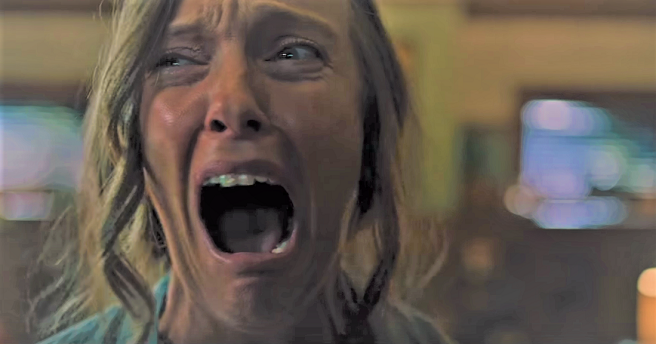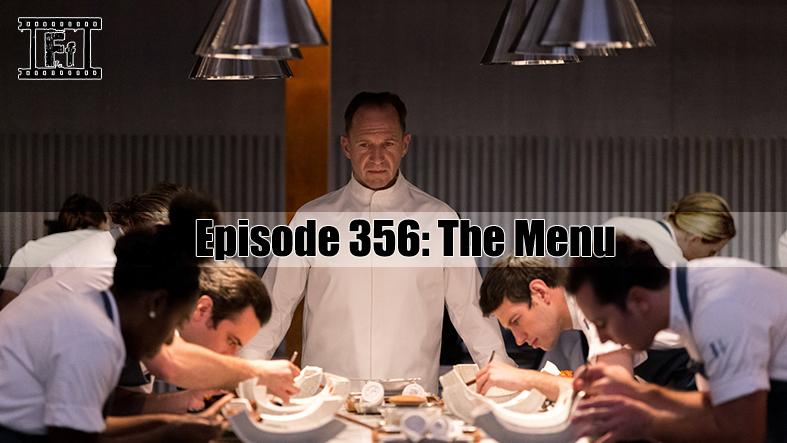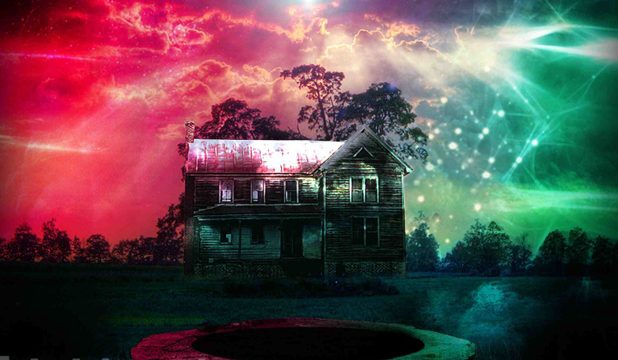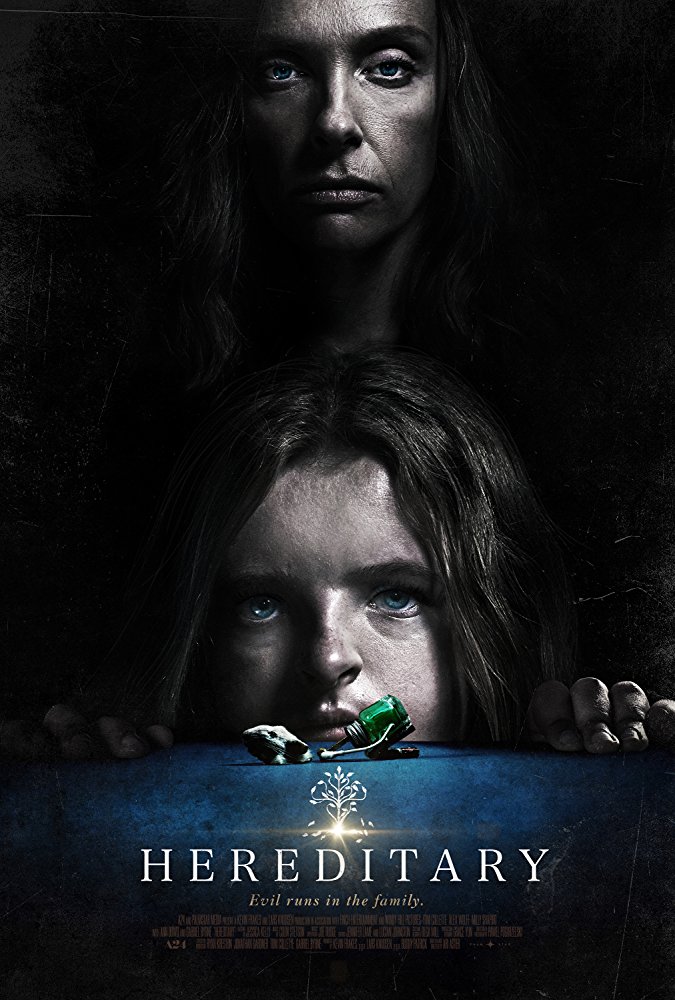HEREDITARY (2018)

2 Hours and 7 Minutes (R)
It’s the morning after I saw Hereditary and I’m still alive. I didn’t have a nightmare, and I slept just fine. I guess it’s not quite the scariest movie ever made? That being said, there is plenty of frightening imagery and a very chilly atmosphere throughout that do contribute to one heck of a tense viewing experience. This directorial debut by Ari Aster may not be a perfectly tuned gem, but it offers something fresh and terrifying in ways audiences are not used to seeing.
Hereditary is the story of a family’s struggle to overcome the tragic fate which seems destined to befall them. Annie (Toni Collette), a miniature design artist, has recently lost her mother, a woman whom with she had a fractured and contentious relationship with. She is torn between feelings of sadness over the death, and also guilt over a lack of it. In the aftermath of her mother’s absence she begins to discover spiritual secrets that hint at a very dark past, one that has greatly impacted Annie’s two children, Peter (Alex Wolff) and Charlie (Milly Shapiro).
There honestly isn’t much more that can be said about the narrative without diminishing the surprises to come. What transpires is a horror tale heavily influenced by Greek tragedy. For the first two acts, it is the definition of slow-burn. The aforementioned atmosphere is cold and dark with an air of dread hanging over the family constantly. The scares come infrequently and often Aster misdirects by lingering in a scene long enough to get audience expectations up before moving on without giving the jump scare we are conditioned to receive. What is most frightening in this section is the depth and pain of the family drama at the film’s heart. It shouldn’t be shocking that a family with evil secrets in their DNA have relationship issues, and these play out deliciously with Collette leading the way. Her performance is probably the best one I’ve ever seen in a horror film by a leading lady, and that includes The Exorcist. Her ability to emote crippling grief, fear, rage, and pain is unbelievable. Luckily we spend most of our time with her because she is absolutely the film’s greatest strength. Unfortunately, this also serves as an accidental detriment, because her children simply can’t live up to the powerful work she puts in. Wolff, in particular, is asked to carry a heavy load, but simply isn’t on Collette’s level. This draws attention to the fact that there is acting happening and pulled me out of the film at times. Gabriel Byrne, playing Annie’s husband Steve, is up to task in a much smaller role, though. His quiet patience and strength as he consistently tries to hold his dysfunctional family together despite the unraveling happening before him is inspiring and resulted in a great amount of empathy for his character.
The cinematography in Hereditary is also awfully good. Annie’s miniature workshop provides the basis for quite a few interesting scenes and the camera’s focus on characters having a breakdown (which happens a lot) really creates a sense of closeness that heightens their emotional release. Likewise the score contributes greatly to the overall perilous mood, and even more so the sound editing is fantastic and a major factor in keeping the audience on the edge at all times. For movies to become classic they need something iconic that can be referenced in future generations, and much like the singing of “Time Is On My Side” in Fallen, the use of tongue clicking in Hereditary will be implanted in your memory forever.
Despite many strengths, the film does disappoint in ways. The third act is a major tonal shift that some may feel is warranted due to the build-up before, but it was jarring and unenjoyable for me. Throughout the story it also felt to me like horror tropes were being checked off of a list and when the supernatural was shown it took away from my enjoyment of the subtle horror displayed within the pulse-pounding mysterious and emotional family drama. This final act took all of that supernatural stuff and cranked it up to 11, providing the shock factor missing previously and ending with a punch that may have been unexpected but left me with the lingering question of, “Do I even care”?
VERDICT
Hereditary is no doubt an audacious debut from a new filmmaker that will likely be talked about all year long and potentially feature heavily in the end-of-year awards conversation. Toni Collette’s performance is stunning and will by itself terrify many viewers. The horror story at the heart of Hereditary, though, is not something tremendously unique. Though the method of revealing its dark secrets is fresh, the evil here is forgettable. If you’re looking for jump scares, this probably isn’t the film for you. But if you enjoyed A24’s previous release The VVitch, you’ll most likely fall in love with the first two acts of this as well. That final act is truly the separating point. Where some see instant classic and walk away shaken and unable to sleep, I was simply annoyed and left feeling that an opportunity for true greatness was just missed.
Rating:
 Aaron White is a Seattle-based film critic and co-creator/co-host of the Feelin’ Film Podcast. He is also a member of the Seattle Film Critics Society. He writes reviews with a focus on the emotional experience he has with a film. Follow him on Facebook and Twitter to be notified when new content is posted.
Aaron White is a Seattle-based film critic and co-creator/co-host of the Feelin’ Film Podcast. He is also a member of the Seattle Film Critics Society. He writes reviews with a focus on the emotional experience he has with a film. Follow him on Facebook and Twitter to be notified when new content is posted.






 Aaron White is a Seattle-based film critic and co-creator/co-host of the Feelin’ Film Podcast. He is also a member of the
Aaron White is a Seattle-based film critic and co-creator/co-host of the Feelin’ Film Podcast. He is also a member of the